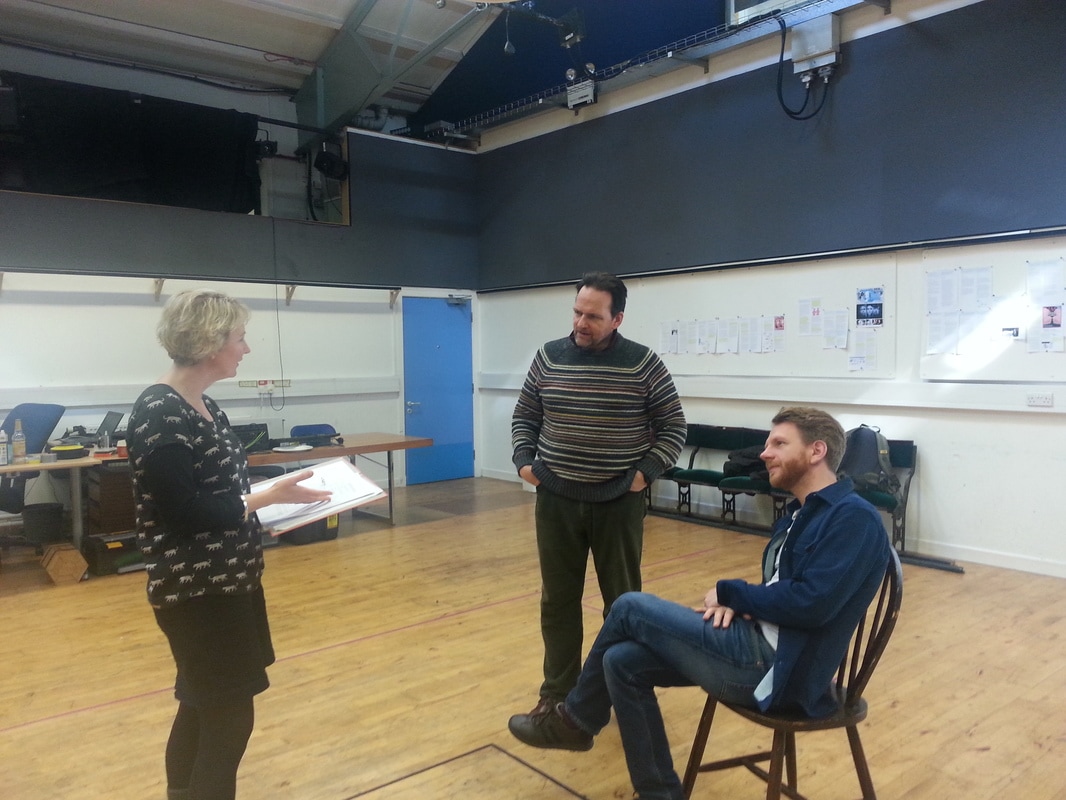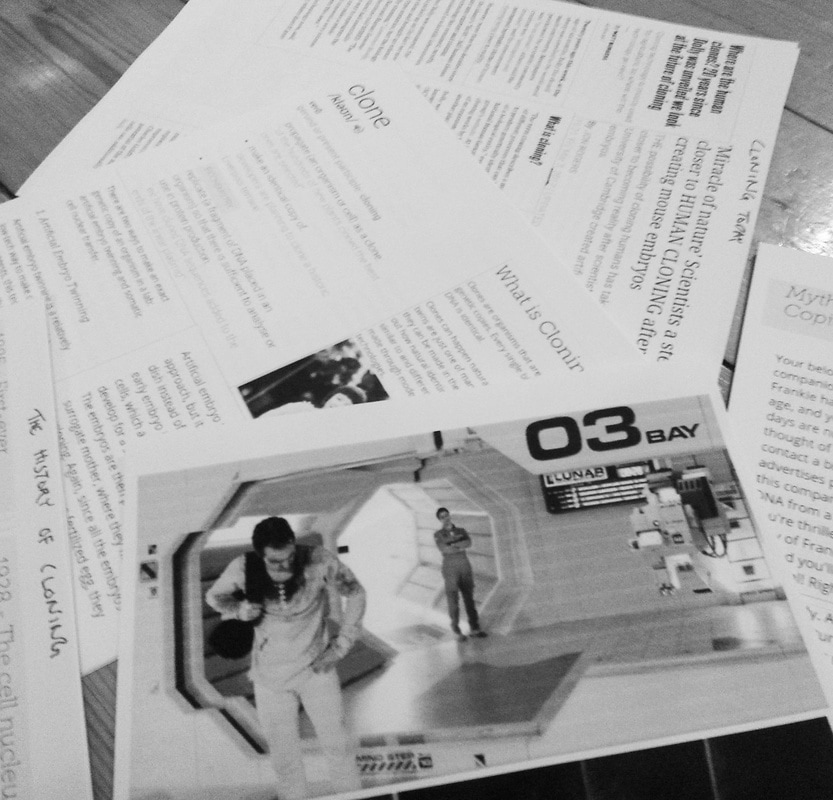|
There's been a lot of fiction about cloning, e.g. Orphan Black, The Island, Jurassic Park, but very few are set in a 'normality' like A Number. We are not in the future, we are not in an alternative universe or dystopia. In fact you wouldn't need to be for the events, the cloning of human beings, to have occured. The future is now. Pretty much. Or it could be.
Researching for the show I found out I've done a bit of cloning with my grandmother (breaking off pieces of plants to grow a new one). You probably have too. It's not future technology, scientists first did an artificial embryo twinning in 1885. You can, if you have the cash, get your diseased pet cloned if you like, which a few grieving owners are taking advantage of right now. Right here, in Edinburgh, Dolly made her mark in 1997 and the newest research, twenty years on, is still developing the science of cloning with her seemingly untimely death as a starting point. How do we rewind the clock on cells we clone to an embryonic state? They're figuring it out. In A Number the father, Salter (Peter Forbes), has found a way to go back to the start, begin again. We've been grappling with this, as well as many other aspects of the story, mapping out the events, the truth and the lies and the spaces in between, in rehearsals. Caryl Churchill's play is written not just about cloning, not just about identity, not just about the argument of nature versus nurture but about family itself, parenting; and as we go through it, line by line, the incredible layers of the story unfold. At first read the play is about cloning. At read, say 50, it's about life itself. The text is written in a way that is very open, often ambiguous with unfinished sentences, broken thoughts and communication breakdowns on every page. I've personally tried to find a compass of sorts in the commas, the full stops and the question marks. The actors, Peter Forbes and Brian Ferguson, have their own way of making sense of it, a sixth sense I think, and of course Zinnie Harris brings the expert insight of a playwright. Together we are decoding it, making decisions on 'what it is', but at first glance the possibilities are numerous, and a sentence said a certain way can change the meaning of a scene. The text being so open gives us real freedom to explore before deciding 'what it is' which is incredibly rewarding. When answers reveal themselves we feel like we've found gold. Because in Churchill we trust, 100%, and it really feels like she trusts us too, to find our path through the web of possibilities she's spun. Like a group of scientists we are looking really closely at all the data before presenting a result, making calculated and detailed decisions each step of the way. I think our findings become more and more incredible every day, and I for one can't wait 'til we can share our great discoveries.
0 Comments
Leave a Reply. |
AuthorInsights from being an FST bursary assistant director to Zinnie Harris on A Number by Caryl Churchill at the Royal Lyceum Theatre, part of the Edinburgh International Science Festival and being a JMK assistant director to Gareth Nicholls on Ulster American by David Ireland at the Traverse Theatre. Archives
December 2021
Categories |


 RSS Feed
RSS Feed